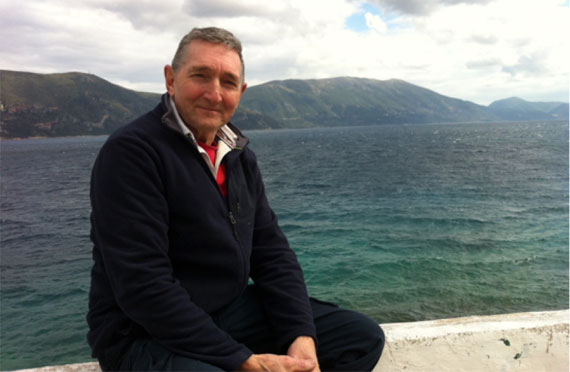
The European Conference on Ports, Maritime Transport & Insularity organised under the auspices of the Aegean Energy & Environment Agency (AEGEA) has established itself as an effective workshop on the critically important and topical issues of sustainability and renewable energy. Another of its virtues is the fact that it is one of the few conferences where the special cases of small ports and island ports are discussed in the real-world context of the wide-ranging challenges that impinge on local communities, and where environmental concerns must be managed head-on with the commercial imperative. Regional and national perspectives are also invoked as topics related to port sector and the shipping industry are examined for both global and local significance.
Other, worthwhile port environmental conferences such as European Environmental Ports Conference (ACI, 16-17 May, Antwerp) and GreenPort Conference (MercatorMedia, October, 2018) present an overtly European/International scale of consideration, whilst “Going Green” has got to be more than a “battle-cry” especially for small, island ports. Managers from such ports will ask themselves “What’s in it for me”? before registering for such a conference. It may be suggested that now is the time for conferences to stop preaching to the converted, but instead to make every effort to welcome delegates whose role it is to actually implement, operate and maintain effective Environmental Management Systems specifically designed to deliver sustainable development, energy efficiency, commercial success and environmental protection. Many observers still believe that the largest gap between policy and practice is that of implementation – what are the technical, methodological and managerial options open to small ports operating within a regional, island system? The European Conference on Ports, Maritime Transport & Insularity organised under the auspices of the Aegean Energy & Environment Agency (AEGEA) is well-placed to consolidate its position as the forum and network for the exchange of knowledge and experience specifically targeted on achieving sustainability of island port activities for the survival of their local communities, viable operation of regional and national tourism, and effective protection of the environment itself.
AEGEA’s Conference is well-positioned to continue as a catalyst for action, forum for consensus, and spotlight on good practice. To achieve these objectives and to enhance further its impact, it is recommended that:
- the conference takes all possible steps to invite and facilitate the attendance of small/island port representatives and their Municipality colleagues
- focus on practicable and demonstrable options, techniques and methodologies
- discuss relevant international and national policies with the focus on practicable implementation
- apply EcoPorts’ practice of exchange of knowledge and experience between ports irrespective of size
- identify ports willing to become or continue as test-cases, pilot studies, or partners ion R&D projects with special emphasis on renewable energy and sustainability.
- Invite industrial companies that are willing to demonstrate technical options on-site or can quote exemplar locations and customers
- Integrate the interests of ports and shipping – what are the options for influencing ‘clean-shipping’ to mutual advantage?
The proposed conference programme is systematic and already contains relevant and topical input. It may be suggested that a useful model may be:
1) Policy: Major developments and issues influencing port sector and shipping industry but presenters specifically guided to focus on actual or potential impacts on small and island ports.
2) Practice: What is actually going on a port level? (Can include Projects). What are the technical and managerial options? Recommended to integrate industrial/company presentations alongside academic/research and commercial examples (Some delegates tend to avoid ‘Company’ presentations). Presentations can demonstrate challenge, options, examples, results. In real life there is the need to manage through systematic, multidisciplinary application of good practice.
3) Performance: How can ports collaborate and network to enhance performance to mutual advantage? What are the benefits? How can existing organisations such as AEGEA and EcoPorts cooperate with national/regional port organisations to assist individual ports to achieve sustainability through good practice at least cost?
This last section would assist in providing worthwhile outcomes and deliverables of the conference. It would be advantageous to have the attendance of port organisations. It is suggested that the above approach would integrate the themes of: a) Networked collaboration, b) EU policy on Transportation, and Port: Shipping links, and c) Combining shore and offshore infrastructure.
If there was any form of support available to assist attendance of representatives from small ports from islands who currently are known to face problems in dealing with environmental management it would give a splendid opportunity to:
- Give them a special briefing (over lunch or in parallel session) on practicable introduction of Environmental Management Systems so that they can deal with environmental issues including renewable energy, impact of shipping, sustainable development etc
- Encourage them to become ambassadors of good practice within their cluster
- Identify potential sites for pilot-studies in conjunction with industrial companies.
